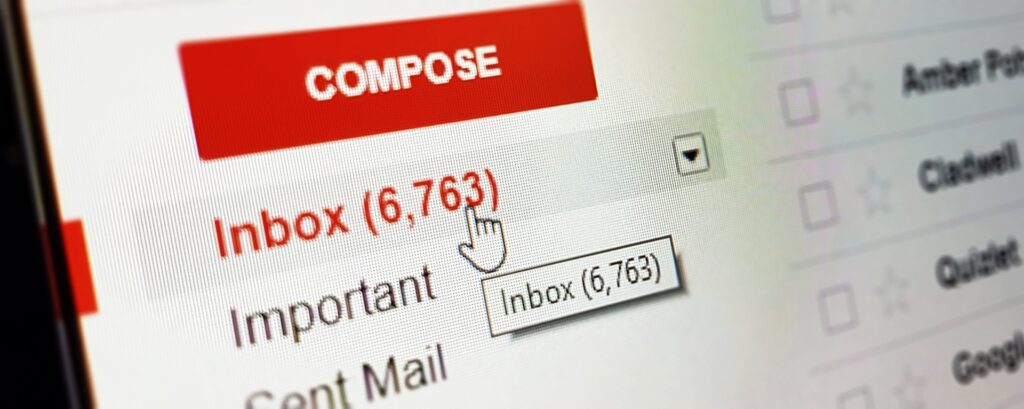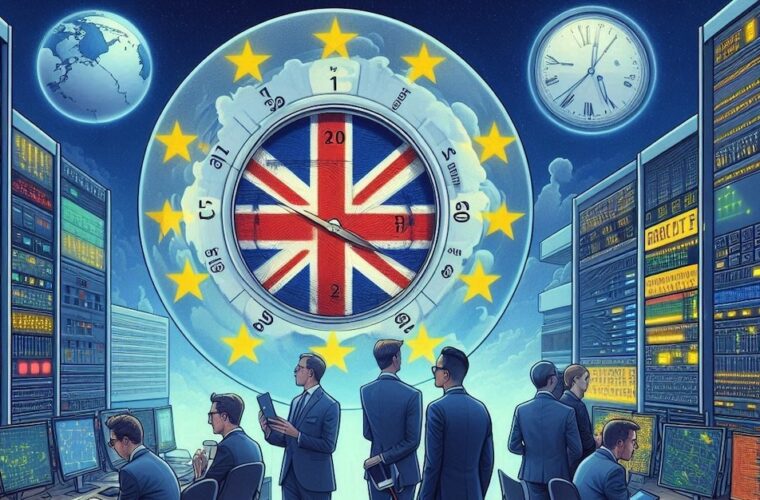Twenty years of Gmail are many but also few. There are many because two decades in contemporary technology are almost equivalent to a geological era. They are also few because Google’s email service seems like a trusted friend who knows everything about you, knows what you like, and knows how and when to help you. Above all, that’s why you would never leave it. Who knows whether Larry Page and Sergey Brin, the two founders of Google, ever thought that Gmail could have enjoyed such lasting global success?
It was 1 April 2004 when it was presented, a good date for jokes rather than for the launch of a killer app, not least because the style adopted by Big G was way over the top: a free email box, albeit with advertising, with a storage space of 1 GB and the possibility of searching through the archive to find messages. It’s too absurd as a service at a time when you had to pay for a 15-megabyte email address. There was so little space that one had to constantly delete messages to avoid filling up the box, with the added bonus of the waves of spam that often arrived to ruin plans.
Outstanding numbers
Twenty years later, we are here glorifying Gmail, the first site I open every time I turn on my computer and the first app I check when I pick up my smartphone in the morning. These acts alone, the same ones that hundreds of millions of people do every day, certify the importance of the service, used by some 1.8 billion users, who send an average of 121 billion messages daily. To get an idea, a quarter of the world’s population uses the service through which 30% of the total daily email traffic passes. Although Google no longer reads the messages, these numbers are part of its strength and the advantage it retains over other big tech, Meta, and, above all, its real competitor in terms of ad revenues.
But why has Gmail maintained and indeed strengthened its leadership in recent years? With the arrival of real-time communication via messaging apps and social media direct messages, email seemed destined to succumb or at least greatly reduce its previous role. Instead, despite Slack, WhatsApp, Facebook, Telegram, Twitter and Zoom, Gmail is more alive than ever. Much of the credit goes to Google and its skill in avoiding changes that could upset an effective tool, which means walking a fine line because it takes little to lose the balance and ruin everything.


Google’s prowess
The original 1GB of free storage space, now increased to 15GB and free, has eliminated the need to delete old emails constantly. At the same time, it has generated an immense flow of messages, which have become too many and difficult to manage. In this sense, the possibility of tracing an address or a message made and still makes a difference, even if sometimes queries do not immediately lead to the desired result.
Google has been adept at gradually integrating small innovations that have improved email management. In 2008, it introduced themes, facilitating order and giving a touch of colour to the inbox. Shortly afterwards came the mobile version, a crucial step for checking emails via smartphone and tablet, thus also outside the office. Also not to be forgotten are minor updates, such as priority messages, quick replies and the possibility to unsubscribe from a newsletter with one click.
Thanks to these additions, Gmail has become an assistant that provides detailed information on any question about our past. From plane tickets to photographs, from old CVs to receipts from the strangest places we have gone, from calendars to letters from friends and colleagues, it is a kind of diary that keeps track of everything. And that reminds us of the day’s commitments, the calls to make, the train to catch, and the appointment not to be missed. Moreover, we can access almost all the apps we use instantly with Google email login. Invented in 1971 by Ray Tomlinson and still so central to our daily lives, email owes so much to Gmail. The least I can do is thank Google, hoping Gmail will still be with me for another twenty years and leveraging AI and Gemini to improve internal search, management and message writing.



